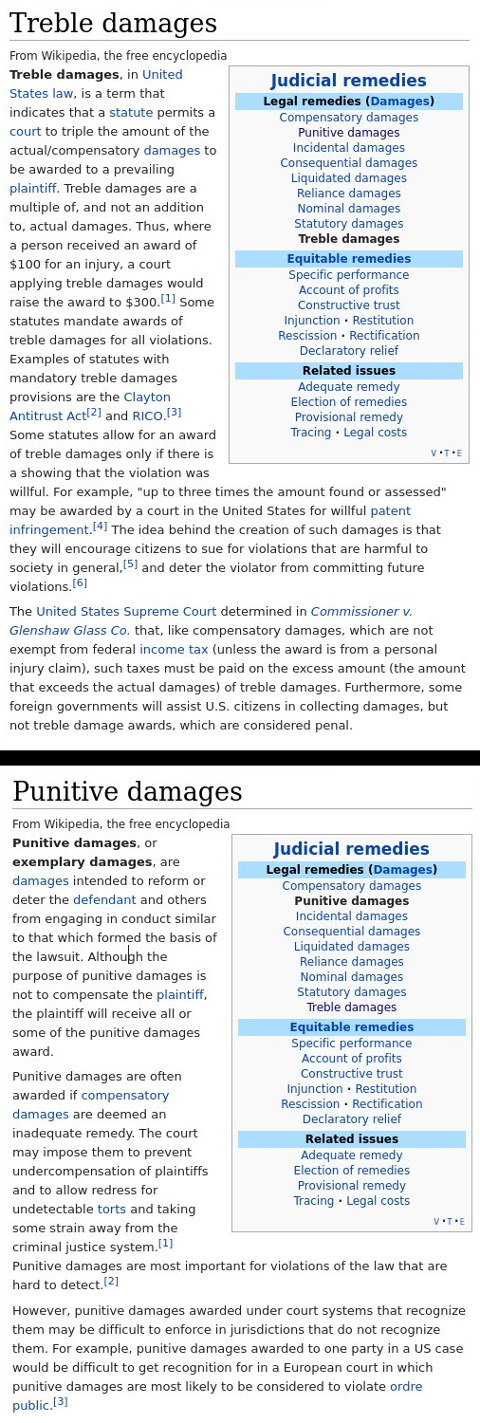

"Disproportionate sizes in litigation have long been an issue."Docket Navigator's "Docket Report" about a BASF (German giant) case speaks of a discredited "expert" report. As Docket Navigator summarised it (along with some excerpts from the original): "The court granted plaintiff's motion to strike report of defendant's contract expert regarding whether defendant sold anticipating prior art before the critical date because the testimony was unhelpful."
It's so concise that it's confusing (what actually happened there). But what's noteworthy here is that a relatively small defender (its workforce size is less than a tenth of BASF's) is being sort of denied the right to/of a defense. Disproportionate sizes in litigation have long been an issue.
"It's almost as though law is being composed for the purpose of deterrence/retaliation rather than justice."Another new "Docket Report" (regarding Sabinsa Corporation v Olive Lifesciences Pvt. Ltd., a herbal products manufacturer in Bengaluru, India) shows what happens when patents not only cause major fines but also treble the 'damages'. "The court," Docket Navigator has explained, "granted plaintiff's motion for enhanced damages against a defaulting defendant because defendant's motivation for harm, lack of a good faith defense, lack of remedial action, duration of misconduct, and lack of closeness of the case favored treble damages."
The concept of treble damages or punitive damages (in the US courts assessing USPTO patents) is prepended at the top for those who aren't familiar with it. It's almost as though law is being composed for the purpose of deterrence/retaliation rather than justice. Appeal to the Federal Circuit would cost a lot of money for companies that size.
Next time sites like Watchtroll make some patently ludicrous claims about US courts hating patents or anything along those lines (US decline in patent protection etc.) be sure to remind them that it's about patent scope, not ideology. US courts are pro-law, not "anti-patent". ⬆